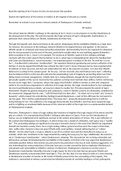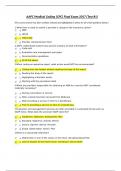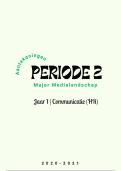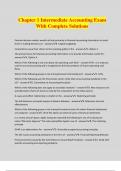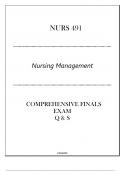Essay
Full-mark exemplar on Othello Act 5, Scene 2 Extract Question
- Vak
- Instelling
- Boek
25/25 mark essay which analyses Othello's opening soliloquy in Act 5, Scene 2 ahead of his murder of Desdemona. Essay examines Shakespeare's dramatic methods and how these heighten the scene (and play's) tragic impact. Relevant contextual information and links to the wider tragic genre are embedded...
[Meer zien]
